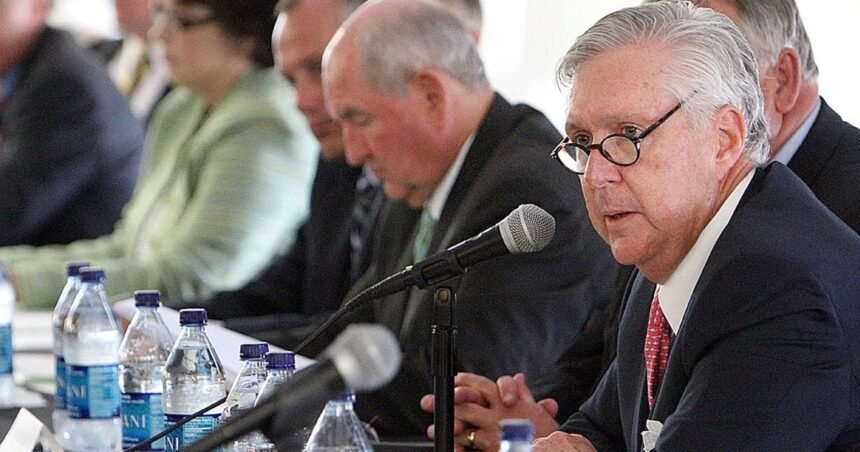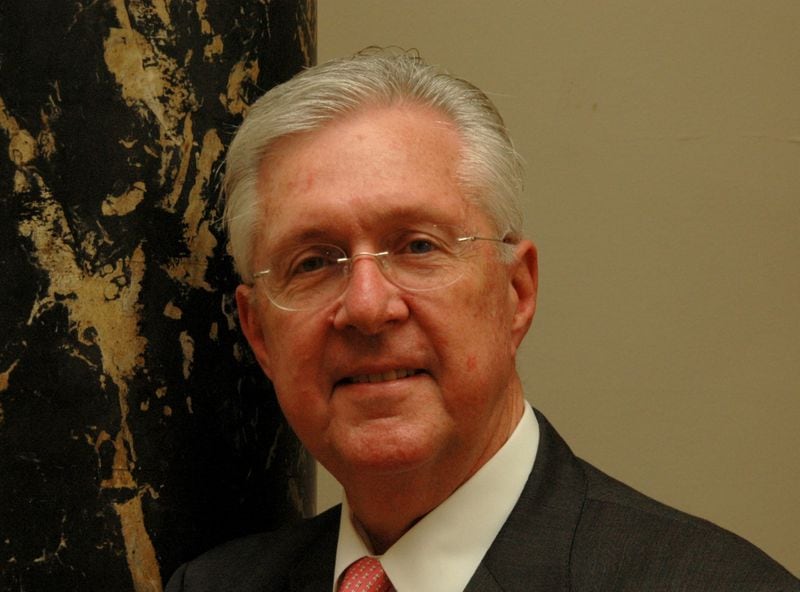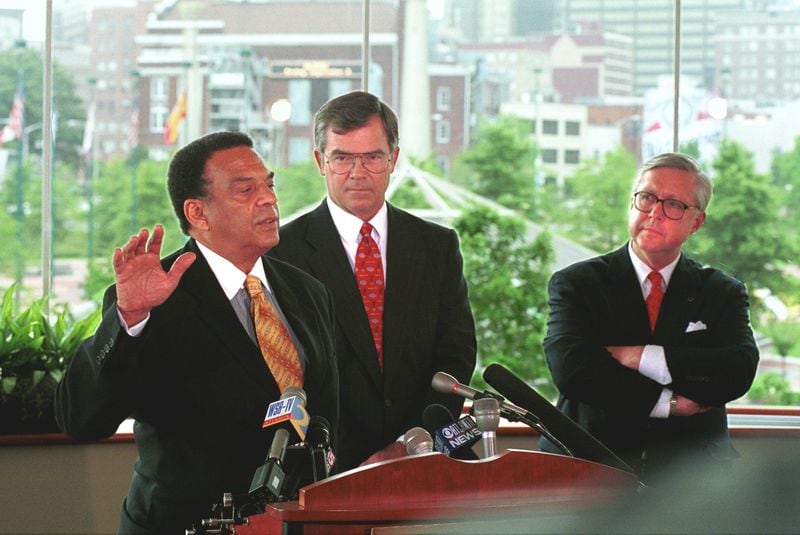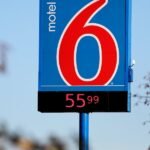For those Games, Atlanta built Centennial Olympic Park, which later became the center of gravity for the city’s tourism industry, attracting the Georgia Aquarium, World of Coca-Cola, College Football Hall of Fame and National Center for Civil and Human Rights. The Olympic Stadium became Turner Field, for years the home of the Atlanta Braves. It is now on its third life as Center Parc Stadium, home of Georgia State University’s football team.
Adolphus Drewry Frazier Jr., a full name he never liked, grew up in Rocky Mount, North Carolina, and earned undergraduate and law degrees from the University of North Carolina in Chapel Hill. He moved to Atlanta in 1969, joining Citizens & Southern National Bank as a management trainee. He took over the public relations department in 1973.
Credit: contributed
Credit: contributed
In 1977, he ran the inauguration of President Jimmy Carter and organized Carter’s White House. Frazier later took a job at a major Chicago bank rising quickly through the ranks before returning to Atlanta to help organize and run the Olympics.
“I think I was just always amazed at his work ethic and ability to assimilate facts and direct people towards the goal and focus on what was important,” said Charlie Battle, a lawyer at Miller & Martin who served as head of international relations for ACOG.
Reflecting in the AJC on the 25th anniversary of The Games in 2021, Frazier wrote “It’s been a generation and many of us were not even alive or were too young to remember when Atlanta hosted ‘the largest peacetime event in history,’ as Games organizer Billy Payne put it.
Credit: AJC
Credit: AJC
“Well, friends, it was indeed a great time in Atlanta’s history. We were center stage for the world. We were fearless, brave, visionary, unified and committed to an idea ‘rooted in goodness,’” Frazier wrote. “We were demonstrating to the world the greatness of our Southern hospitality. We put aside those things that divided us and focused — if just for a moment — on those things that made us one. Together. We even overcame a terrorist bomber and reopened the park. I wept.”
In that same op-ed, Frazier remarked that the city was “filled with love, good spirits and pride,” during The Games, but lamented that those feelings had been lost over the years with the region mired in political tribalism and Balkanization.
“We were at the cusp of greatness 25 years ago and we can be there again,” he said.
Bert Roughton, a retired AJC senior managing editor who in the 1990s was the beat reporter assigned to cover the city’s Olympic preparations, said Frazier bridged the old Atlanta business world and post-Olympic world.
“A.D. is probably the single person most responsible for the success of the 1996 Olympics,” Roughton said. “He converted a dream into a reality.”
Roughton recalled an early conversation he had with Frazier at Manuel’s Tavern not long after he took the job as ACOG COO.
“He told me that he would always tell me — the reporter covering the preparations for the Olympics — the truth as far as he knew it so long as I would report it as he told me,” Roughton said. “We had tense moments but developed a bond of trust that lasted long after closing ceremonies.”
After The Games, Frazier took on the role of president of Invesco, the Atlanta-based investment powerhouse. Later, Frazier returned to Chicago, serving as chairman and CEO of the Chicago Stock Exchange before a stint as president of CVS Caremark. He also served as chairman and CEO of Danka Office Imaging.
He was also a top adviser on a state panel on taxation that helped rewrite much of Georgia’s tax code.
In his later years, Frazier lived in Mineral Bluff in the North Georgia Mountains. He served as president of Georgia Oak Partners, a private equity firm. He also served on numerous boards, including for oil and gas giant Apache Corp. and the Tennessee Valley Authority.
-This is a developing story and will be updated. Return to AJC.com.













